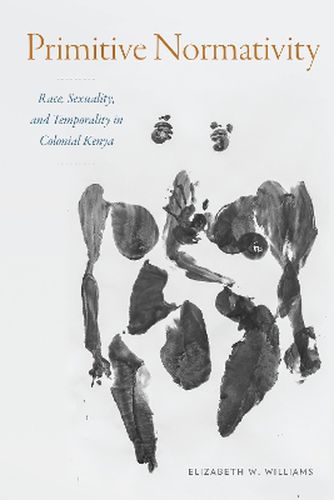Readings Newsletter
Become a Readings Member to make your shopping experience even easier.
Sign in or sign up for free!
You’re not far away from qualifying for FREE standard shipping within Australia
You’ve qualified for FREE standard shipping within Australia
The cart is loading…






In Primitive Normativity Elizabeth W. Williams traces the genealogy of a distinct narrative about African sexuality that British colonial authorities in Kenya used to justify their control over African populations. She identifies a discourse of "primitive normativity" that suggested that Kenyan Africans were too close to nature to develop the forms of sexual neuroses and practices such as hysteria, homosexuality, and prostitution that were supposedly common among Europeans. Primitive normativity framed Kenyan African sexuality as less sexually polluted than that of the more deviant populations who colonized them. Williams shows that colonial officials and settlers used this narrative to further the goals of white supremacy by arguing that Africans' sexuality was proof that Africans must be protected from the forces of urbanization, Western-style education, and political participation, lest they be exposed to forms of civilized sexual deviance. Challenging the more familiar notion that Europeans universally viewed Africans as hypersexualized, Williams demonstrates how narratives of African sexual normativity, rather than deviance, reinforced ideas about the evolutionary backwardness of African peoples and their inability to govern themselves.
$9.00 standard shipping within Australia
FREE standard shipping within Australia for orders over $100.00
Express & International shipping calculated at checkout
In Primitive Normativity Elizabeth W. Williams traces the genealogy of a distinct narrative about African sexuality that British colonial authorities in Kenya used to justify their control over African populations. She identifies a discourse of "primitive normativity" that suggested that Kenyan Africans were too close to nature to develop the forms of sexual neuroses and practices such as hysteria, homosexuality, and prostitution that were supposedly common among Europeans. Primitive normativity framed Kenyan African sexuality as less sexually polluted than that of the more deviant populations who colonized them. Williams shows that colonial officials and settlers used this narrative to further the goals of white supremacy by arguing that Africans' sexuality was proof that Africans must be protected from the forces of urbanization, Western-style education, and political participation, lest they be exposed to forms of civilized sexual deviance. Challenging the more familiar notion that Europeans universally viewed Africans as hypersexualized, Williams demonstrates how narratives of African sexual normativity, rather than deviance, reinforced ideas about the evolutionary backwardness of African peoples and their inability to govern themselves.